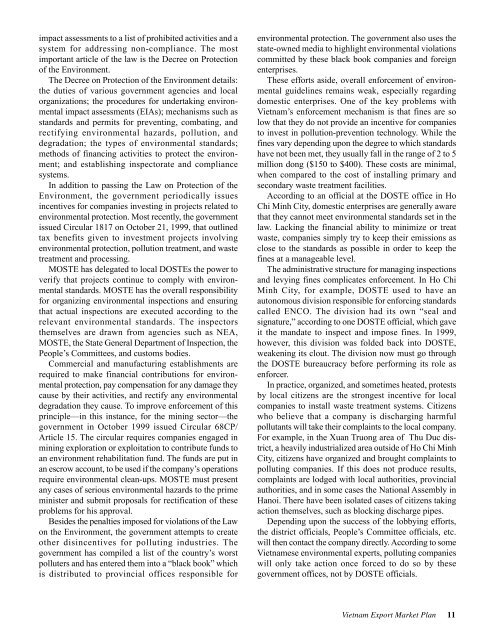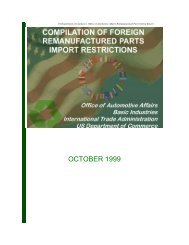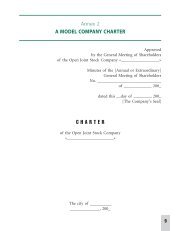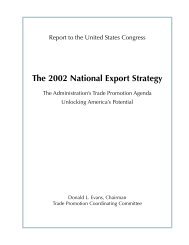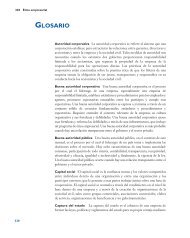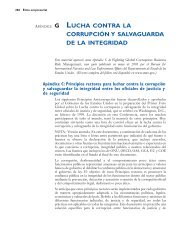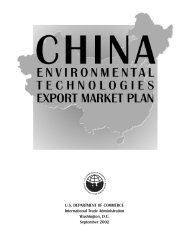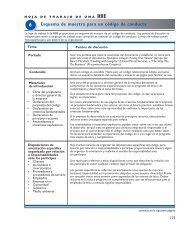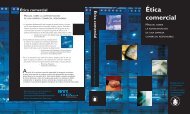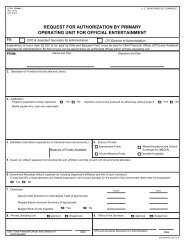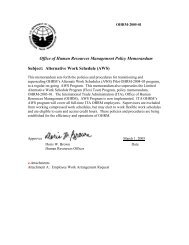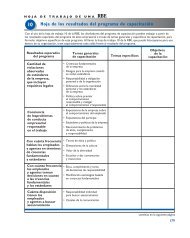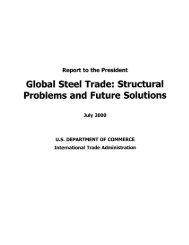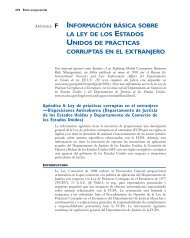Vietnam Environmental Technologies Export Market Plan
Vietnam Environmental Technologies Export Market Plan
Vietnam Environmental Technologies Export Market Plan
Create successful ePaper yourself
Turn your PDF publications into a flip-book with our unique Google optimized e-Paper software.
impact assessments to a list of prohibited activities and a<br />
system for addressing non-compliance. The most<br />
important article of the law is the Decree on Protection<br />
of the Environment.<br />
The Decree on Protection of the Environment details:<br />
the duties of various government agencies and local<br />
organizations; the procedures for undertaking environmental<br />
impact assessments (EIAs); mechanisms such as<br />
standards and permits for preventing, combating, and<br />
rectifying environmental hazards, pollution, and<br />
degradation; the types of environmental standards;<br />
methods of financing activities to protect the environment;<br />
and establishing inspectorate and compliance<br />
systems.<br />
In addition to passing the Law on Protection of the<br />
Environment, the government periodically issues<br />
incentives for companies investing in projects related to<br />
environmental protection. Most recently, the government<br />
issued Circular 1817 on October 21, 1999, that outlined<br />
tax benefits given to investment projects involving<br />
environmental protection, pollution treatment, and waste<br />
treatment and processing.<br />
MOSTE has delegated to local DOSTEs the power to<br />
verify that projects continue to comply with environmental<br />
standards. MOSTE has the overall responsibility<br />
for organizing environmental inspections and ensuring<br />
that actual inspections are executed according to the<br />
relevant environmental standards. The inspectors<br />
themselves are drawn from agencies such as NEA,<br />
MOSTE, the State General Department of Inspection, the<br />
People’s Committees, and customs bodies.<br />
Commercial and manufacturing establishments are<br />
required to make financial contributions for environmental<br />
protection, pay compensation for any damage they<br />
cause by their activities, and rectify any environmental<br />
degradation they cause. To improve enforcement of this<br />
principle—in this instance, for the mining sector—the<br />
government in October 1999 issued Circular 68CP/<br />
Article 15. The circular requires companies engaged in<br />
mining exploration or exploitation to contribute funds to<br />
an environment rehabilitation fund. The funds are put in<br />
an escrow account, to be used if the company’s operations<br />
require environmental clean-ups. MOSTE must present<br />
any cases of serious environmental hazards to the prime<br />
minister and submit proposals for rectification of these<br />
problems for his approval.<br />
Besides the penalties imposed for violations of the Law<br />
on the Environment, the government attempts to create<br />
other disincentives for polluting industries. The<br />
government has compiled a list of the country’s worst<br />
polluters and has entered them into a “black book” which<br />
is distributed to provincial offices responsible for<br />
environmental protection. The government also uses the<br />
state-owned media to highlight environmental violations<br />
committed by these black book companies and foreign<br />
enterprises.<br />
These efforts aside, overall enforcement of environmental<br />
guidelines remains weak, especially regarding<br />
domestic enterprises. One of the key problems with<br />
<strong>Vietnam</strong>’s enforcement mechanism is that fines are so<br />
low that they do not provide an incentive for companies<br />
to invest in pollution-prevention technology. While the<br />
fines vary depending upon the degree to which standards<br />
have not been met, they usually fall in the range of 2 to 5<br />
million dong ($150 to $400). These costs are minimal,<br />
when compared to the cost of installing primary and<br />
secondary waste treatment facilities.<br />
According to an official at the DOSTE office in Ho<br />
Chi Minh City, domestic enterprises are generally aware<br />
that they cannot meet environmental standards set in the<br />
law. Lacking the financial ability to minimize or treat<br />
waste, companies simply try to keep their emissions as<br />
close to the standards as possible in order to keep the<br />
fines at a manageable level.<br />
The administrative structure for managing inspections<br />
and levying fines complicates enforcement. In Ho Chi<br />
Minh City, for example, DOSTE used to have an<br />
autonomous division responsible for enforcing standards<br />
called ENCO. The division had its own “seal and<br />
signature,” according to one DOSTE official, which gave<br />
it the mandate to inspect and impose fines. In 1999,<br />
however, this division was folded back into DOSTE,<br />
weakening its clout. The division now must go through<br />
the DOSTE bureaucracy before performing its role as<br />
enforcer.<br />
In practice, organized, and sometimes heated, protests<br />
by local citizens are the strongest incentive for local<br />
companies to install waste treatment systems. Citizens<br />
who believe that a company is discharging harmful<br />
pollutants will take their complaints to the local company.<br />
For example, in the Xuan Truong area of Thu Duc district,<br />
a heavily industrialized area outside of Ho Chi Minh<br />
City, citizens have organized and brought complaints to<br />
polluting companies. If this does not produce results,<br />
complaints are lodged with local authorities, provincial<br />
authorities, and in some cases the National Assembly in<br />
Hanoi. There have been isolated cases of citizens taking<br />
action themselves, such as blocking discharge pipes.<br />
Depending upon the success of the lobbying efforts,<br />
the district officials, People’s Committee officials, etc.<br />
will then contact the company directly. According to some<br />
<strong>Vietnam</strong>ese environmental experts, polluting companies<br />
will only take action once forced to do so by these<br />
government offices, not by DOSTE officials.<br />
<strong>Vietnam</strong> <strong>Export</strong> <strong>Market</strong> <strong>Plan</strong><br />
11


